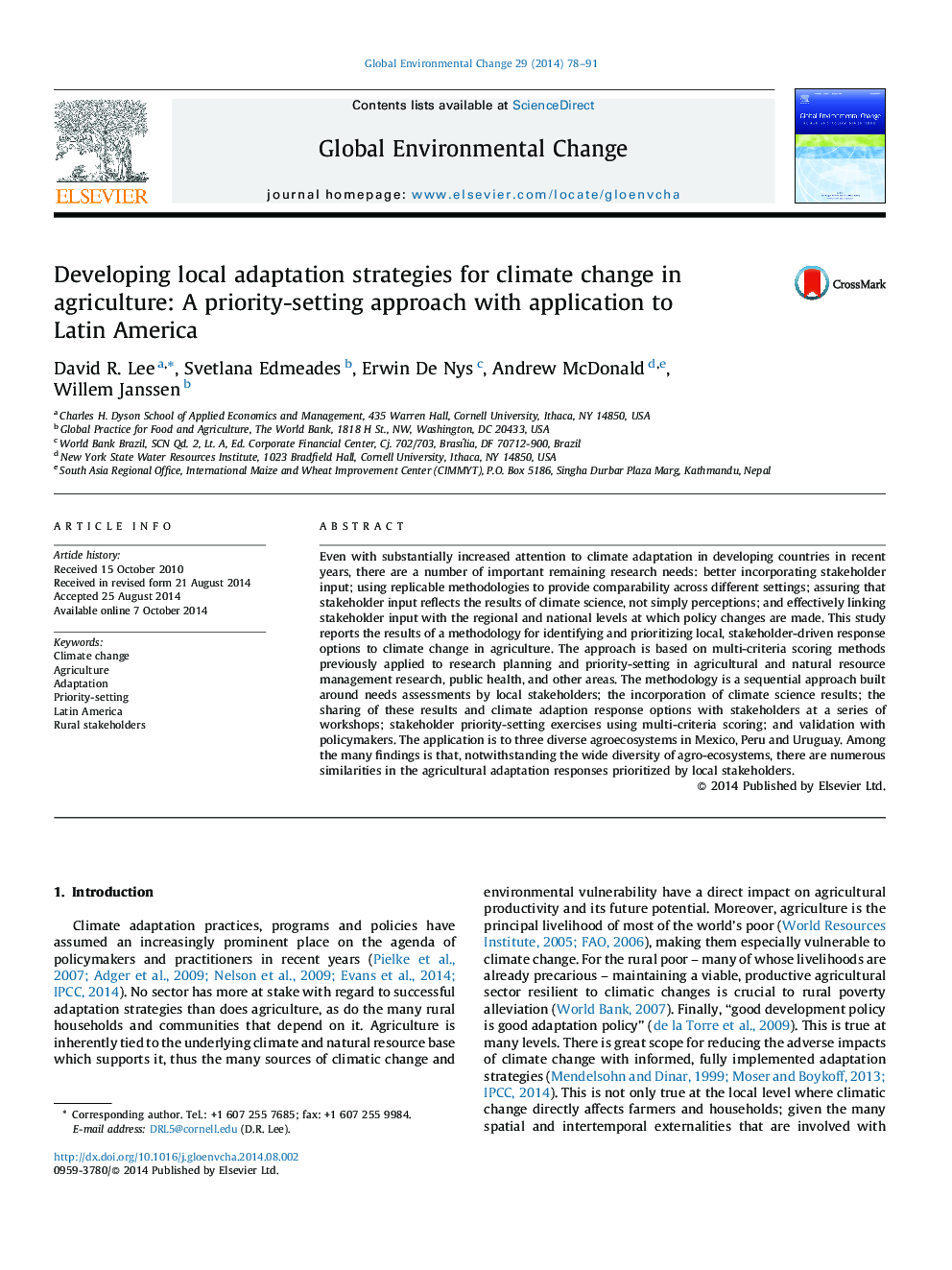| Article ID | Journal | Published Year | Pages | File Type |
|---|---|---|---|---|
| 7470236 | Global Environmental Change | 2014 | 14 Pages |
Abstract
Even with substantially increased attention to climate adaptation in developing countries in recent years, there are a number of important remaining research needs: better incorporating stakeholder input; using replicable methodologies to provide comparability across different settings; assuring that stakeholder input reflects the results of climate science, not simply perceptions; and effectively linking stakeholder input with the regional and national levels at which policy changes are made. This study reports the results of a methodology for identifying and prioritizing local, stakeholder-driven response options to climate change in agriculture. The approach is based on multi-criteria scoring methods previously applied to research planning and priority-setting in agricultural and natural resource management research, public health, and other areas. The methodology is a sequential approach built around needs assessments by local stakeholders; the incorporation of climate science results; the sharing of these results and climate adaption response options with stakeholders at a series of workshops; stakeholder priority-setting exercises using multi-criteria scoring; and validation with policymakers. The application is to three diverse agroecosystems in Mexico, Peru and Uruguay. Among the many findings is that, notwithstanding the wide diversity of agro-ecosystems, there are numerous similarities in the agricultural adaptation responses prioritized by local stakeholders.
Related Topics
Life Sciences
Environmental Science
Environmental Science (General)
Authors
David R. Lee, Svetlana Edmeades, Erwin De Nys, Andrew McDonald, Willem Janssen,
